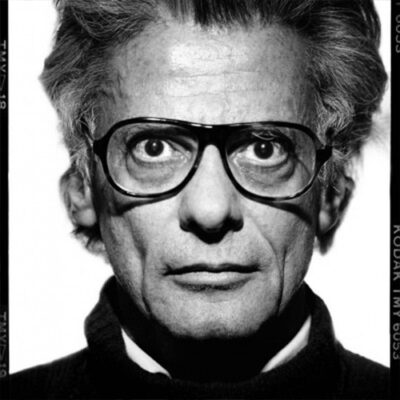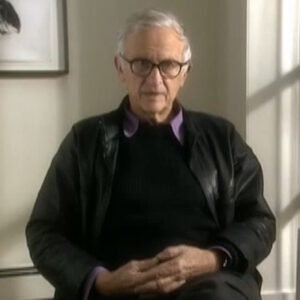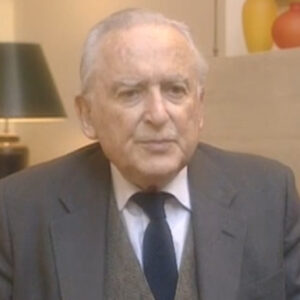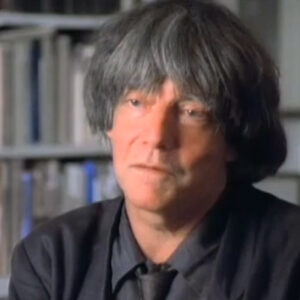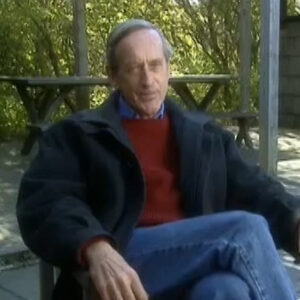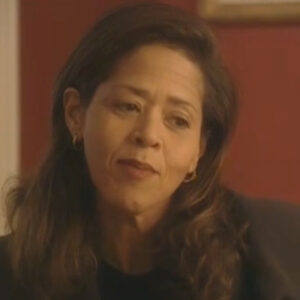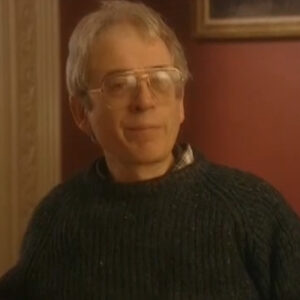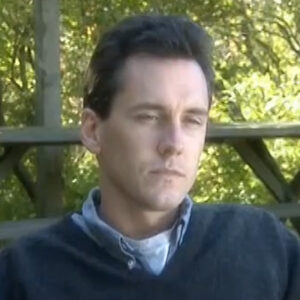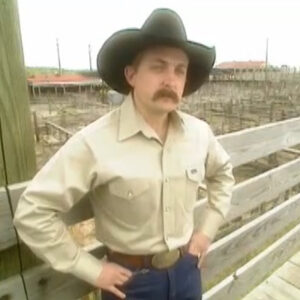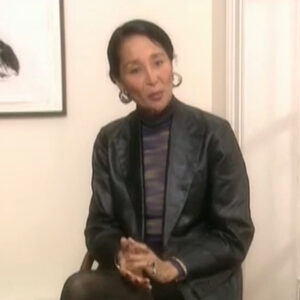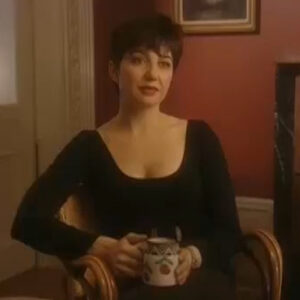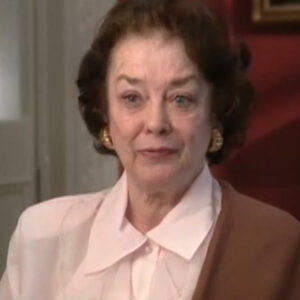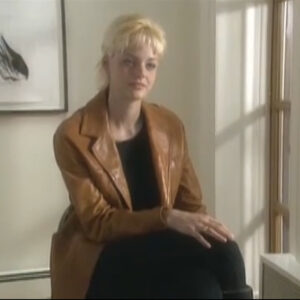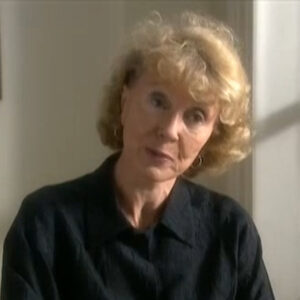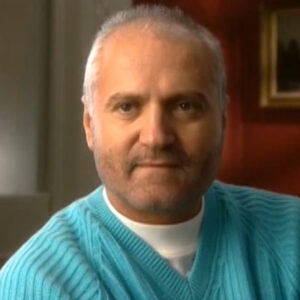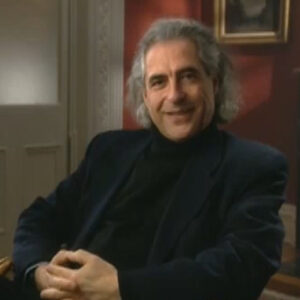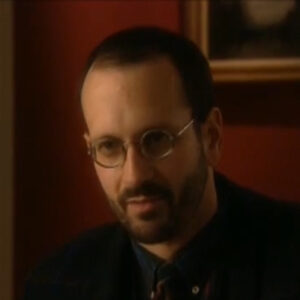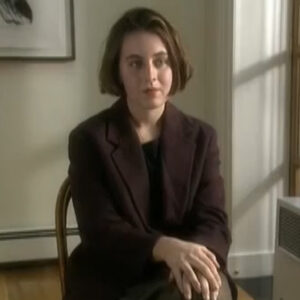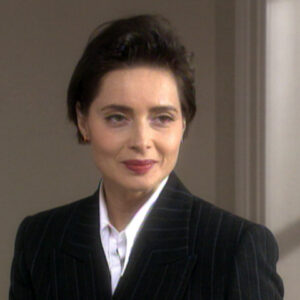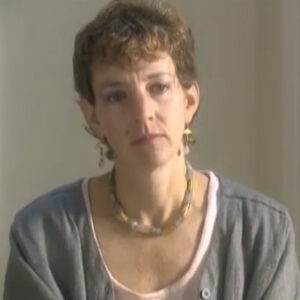Speaker Well, first, my sitting with Avidan was one of these incredible surprises where I was I was singing at the Algonquin and I was told that Whitney Balliett was writing a piece about me that was exciting enough. But then I heard the Tina Brown wanted Abbadon to take the picture. And I’d already known Dick a little bit because he used to come and see me sing. There were particular songs that he liked a lot and he had come to a few shows and then he called and he said, it’s not going to happen because they can’t meet my schedule. And then he called me, said, I think it can happen. And then I don’t remember who made the final call.
Speaker I think it was me in despair saying, please, because every day I had a picture by Avidan. I didn’t have a picture of it and I had one. I didn’t. And this had been a lifelong. The thing I mean, I can’t say that when I was five, I wanted to be photographed by Avedon, but by the time I got to be a teenager, he was a very big part of my life.
Speaker And for one very important reason. And that was the pictures he did of Lauren Hutton. See, because until then, everyone was so perfect. And I can remember as if it was yesterday, the day I saw the picture of Lauren Hutton with the gap between her teeth and she was jumping and she was completely natural and totally real. And it had been the first time in a fashion magazine that I saw someone who was allowed to be real. And I fell in love with her. I fell in love with his work. I followed him all the way. So when I finally met him, it was on the tip of my tongue, you know, to just say, oh, I’ve always wanted to be you had you take a picture.
Speaker Oh, please. But I knew better not to. So finally, the day arrives that I’m going to. Of course, my my heart is a little sad.
Speaker I remember telling my husband this, that what a shame that when I’m finally photographed by Avedon, I’m no longer what I considered my best, my prettiest, my hayday, whatever it was. I really obviously was imagining a heyday in my 20s or something stupid like that. I’ve gotten over this, by the way. But I felt sad and thrilled at the same time that some dream would come true. But was I really. Up to it, and I arrived at his at his wonderful studio, which is just so full of life and activity. And of course, I brought all my normal regalia. I mean, all my black velvet junkin and my evening gowns and and my makeup and my mother’s earrings. And because I know how she wanted me to look in the picture, but I was secretly hoping that he would see me as I arrived, because in real life, I wear this. I mean, I wear my my my husband’s clothes. I wear jeans and and sometimes just leotards and such clothes. I mean, just ordinary things. And I secretly hoped that the minute he saw me walk in the door, he would say, oh, I don’t want you to do anything like that yet, that it just look like that. And a smaller, more subtle version of that actually did happen. He said, I can take your picture and glamorize you and turn you in. I mean, obviously, I know how. I mean, we can do a really glamorous picture or we can go for something very real and very truthful and very simple. It’s your call. What would you like to be?
Speaker And I felt that since it was Abbadon. That he was the type of photographer that was capable of capturing you.
Speaker As you actually were in that I had an opportunity to have a picture of the real me, not this tricked up thing that I’d been able to do myself for years. I mean, I know how to do it. And I said, well, I kind of like just my husband’s shirt and no makeup and no hair and and no nothing. And he said, good. I was hoping you’d say that.
Speaker That’s kind of what you get. My mother called.
Speaker My mother called when the magazine came out and she said, must you d glamorize yourself as if I’m born glamorous? You understand? As if I’m just naturally glamorous. But I have to work to become unglamorous. And I don’t think she quite understood what I was after. But there when you see the photograph, you see exactly what my husband sees.
Speaker You see what my friends see. You see.
Speaker A fairly joyous person, considering how many sad songs I’ve sung in my life and someone having an absolutely marvelous time, which I did have, I did have I was a little nervous, but I had a wonderful, wonderful time.
Speaker Brains. If I must admit, what I was excited about the photograph is that it doesn’t look like like like the photograph of the entertainer Persay. It looks it looks more like the picture of a writer, of a thinker, of a creator that works at home. Not a person who works on stage A.
Speaker And somehow the sum total of all my years of.
Speaker Life’s therapy. I’m not a therapy sized person in particular, but I’ve learned a great deal, especially in the last 10 years of my life, has been the great growth spurt. And I see that growth because I see the ease with which I was comfortable in my own skin.
Speaker And I see.
Speaker A great sparkle, which somehow when I know how he did it, too, I mean, he goes down there to The New Yorker and he watches them print everything and he prints somehow. I don’t know how he does it, but he makes the page of the magazine print quality. And he worked on this picture a lot to make sure that it would be exactly as he saw it. He was fascinating to me. It’s black and white. But for him, there are 300 colors in that picture.
Speaker I couldn’t understand what the hell he was talking about. I mean, he kept taking big, big eight by 10 Polaroids and he was talking about the grades to his crew, you know. And it was very, very small, just one assistant. But about the greys, the different kinds of grays. No, I want the black lacquer and I want the white whiter and I want the grey grayer and. But I mean, for him, it was color.
Speaker Take a two color weather with no color and.
Speaker And when I finally saw the final print in the magazine, by the way, because I didn’t really see it beforehand, I could see what he was talking about. There are subtle tones that are so staggering. And people came to the Algonquin with the magazine Open for weeks afterwards for me to sign. After I sang for weeks, they would bring that magazine and I would see it on the table, as I say, was such an exciting thing.
Speaker Spoke a little bit, but how hard he tried and how nervous he was to.
Speaker That’s the thing that surprised me the most I expected. I’ve seen him socially. He is dashing, dashing. Nothing short of dashing and extraordinary out in the world. And in his own studio, I felt. That he had the same sort of marvelous neuroses that the rest of us have about, can I achieve the thing that I want to do today? Am I up to it? Am I capable of it? I’m worried about a million things, but he’s worried. Can he make a picture of Andrea Markovich that he’s going to be quintessential Andrea Markovich? Is it going to be some are her friends going to be able to say that’s really her? I don’t know exactly what he wanted to do for me, but. It seemed important enough to him that he was very nervous and he said, look, we’re going to work today, right?
Speaker We’re going to work. But if we don’t get it, I don’t want you to worry about this so we don’t get it. You are. You will just come back and we’ll do it again.
Speaker So don’t don’t don’t worry about it. Because, you know, we might not get it. We might not. I think we I think we can, but we might not.
Speaker I was thinking, well, this is great, because if he can be that concerned, this is the man that I’ve looked up to for so many years, then I can certainly, you know, be myself. Then the other big surprise is that he doesn’t look through the camera ever, at least not in my sessions.
Speaker And I’m so used to because I’m a bit of a I mean, as an actress and having been in the movies for years and having been on television for years and having been photographed for years, I mean, 20 years of it. I’m very used to communicating directly into the lens. It doesn’t throw me. It doesn’t make me feel in authentic. I can sing right into the eye of the camera and feel the person that is behind it. And so I’m very used to being photographed and communicating to the photographer through the lens.
Speaker And he Resolute Lee was never there. He was where you are. He was where you are.
Speaker He was wandering around and he had a long little. I mean, it was very old fashioned, kind of long, too, with a little push button. And you would never know when he was going to push that button. And finally, the only thing to do was he would just engage you in conversation.
Speaker And just take whenever he saw something that he liked. And as a result, you could never plan the photograph. Because how would you know what it was that he liked? You couldn’t. And as you’re talking, it was like being across the table from somebody at dinner. Maybe they find you beautiful or interesting or stoppable, but you wouldn’t know when that was unless you were so self-conscious that you’re probably having a pretty lousy dinner. So he he was astounding that way. He just seemed to to see things in my conversation or whatever that that he liked. And it absolutely disallowed me to pose. And I have all my favorite poses because after being photographed badly for years, I’ve learned certain things to do that. I know that, you know, someone will not photograph me badly and it just it just made it impossible. And then finally, what he asked for, which was in some ways a very hard thing to do, was for me to say he has a favorite song called It Amazes Me.
Speaker And he had me sing it just over and over and over again. So I don’t know whether the actual. Picture that he took. Is one, when I was singing, we’re talking, but. It is certainly one after I’ve sung. There is definitely the look on my face that I have after I’ve given a concert. What kind of wide open spent? Simple. Look, that that comes from having some. And it’s a little funny and a little awkward and a little sweet to sing in a room when it’s not your time for singing, if you know what I’m saying. And, uh. He liked he liked that very much, and I would I would always remember that.
Speaker Take us back in time to the very first.
Speaker The very first time I had one of those big opportunities to be photographed, I guess I was in my. I may be my early, early, early 20s. I think. And I was just beginning to get some attention from my acting and I had a chance to be in a magazine, I think they called it VVA. Was there a diva or was that just veev of the star of. But I think it was called diva. And they said, well, Francesco Scavullo is going to take your picture. And everybody wanted to be taken.
Speaker Everyone wanted to have Scavullo do their picture. And I got to this studio and I have to say that it was a time that just physically I mean, I was so young, I was such a puppy. There was just nothing wrong with my face. There was nothing. There was nothing much there to do. And you know that I mean I don’t mean this in any hard way to Mr. Scavullo. I don’t in any I mean, I don’t I don’t mean to say that this is something he shouldn’t have done. It’s just the way he worked. When I came in, I felt that I was a nobody.
Speaker He looked at me. Nothing. Nothing. Just. Oh, go get your makeup done. You’re welcome to. But nothing. No, actually, looking at my face. Looking at the bone structure. No, nothing. No attention paid to me whatsoever. Sent me in way Bandi, the makeup artist, the famous one and waveband. He covered me with makeup from the top of here to hear makeup. So stick. You’ve never seen anything like it in your life. Makeup so unnatural for me. So incredibly wrong. That they do to every single model, and they did it to every single celebrity and they just did it to everybody, it was just the look. It was the way Bandy thing. And he just did his thing. Suddenly, when all of it’s done and the hair has been curled within an inch of its life, income’s Scavullo.
Speaker And suddenly, I’m gorgeous. Gorgeous. And how fabulous you are. And my God, what a beauty. And. Even at that age, I knew.
Speaker There’s something wrong with this picture. There was something there was something wrong with it. For me, it was a letdown. Even at that age, and obviously it must have been because I never, ever, ever forgot it. There had been a sense that whatever was beautiful about me, they made.
Speaker That it wasn’t my parents that made it. It wasn’t me and something shining through me.
Speaker That could be called beautiful. It was the look.
Speaker The Scavullo look, this look, that look, and and I think that was one of the reasons that I I lived my life sort of makeup free for the rest of my life. I really have. And any time I let I let people do it, it always does look a little strange. Just recently, I had the fun of being in a major national magazine. But they did their thing. You know, that makeup thing and.
Speaker I was laughing because they took jail and stuff and they plastered my hair down close to me. I don’t know what the hell they were doing. You know, it’s like that’s all plastered out. They thought it was gorgeous. And I was in such a good mood because I’ve gotten past all this vanity now that I thought, OK, whatever they want, you know. But in the magazine, it’s not me. It’s some strange sort of hybrid of me and something that they had in mind and.
Speaker I don’t know, I think that if you really wanted to extrapolate on this as to what women of our generation have grown up with and how they’ve been told to be and whether it’s. Don’t get me started on the weight issue and Twiggy and the influence and anorexia and all the rest. There’s some damage done there. There’s some damage done there. To think that if you if if the latest eyeliner is going to make you feel better about yourself and God knows when you want to, Chuck. What women are doing to their faces instead of growing old with their face as it is. That stuff scares me. And the influence of magazines on teenagers is very, very, very, very strong. And somehow I knew even then after that strange experience where I had felt annihilated by the makeup.
Speaker I felt that I had been completely washed away. And yet they said I was beautiful, picture is silly. It could have been anybody.
Speaker I guess I learned a lot about it then and I learned a lot that came out of me many, many years later. A sense of honesty and a sense of wanting to be myself and having to be happy with yourself because you you kill yourself. Otherwise, you spend you waste your life. Just wasted.
Speaker As a teenager to those images of perfection, did you see them growing up?
Speaker The reason why I love Lauren Hutton so much is because I felt that she was very realistic, a very realistic and beautiful woman. I was pretty crazy about Jean Shrimpton, also great beauty. But Twiggy was very damaging for me. She was damaging. That was the beginning of my. My own private hell, because anybody who’s been through anorexia, the way I have. It’s hell, it’s just it’s just an unspeakable place to find yourself. And I’m not going to be so shallow is to blame fashion magazines. And we can’t do that.
Speaker It would have been a lot easier if the Rubins idea of womanhood was on the cover of Vogue and we were allowed to be a little heavier. I don’t think I would have become an anorexic. So although I’m not blaming fashion magazines, I’m certainly saying that our popular culture that reveres this impossible shape for women is a very dangerous popular culture.
Speaker And now NAFO, it’s even worse because now the women have no hips and they have breasts, which as we know, is completely impossible. It’s not doable. And the models that they’re finding now hurt me even more because they still have, you know, straight up and down legs with absolutely nothing on the side. But they also have these gorgeous, full, rounded, exquisite breasts. At least Twiggy was a stick from from start to finish. So I could identify with half of her. It was also stupid. But growing up with some of those images can be dangerous.
Speaker And just the idea that, you know, you’re bombarded with it as as as a young adult and just bombarded with what your bottom is supposed to look like and what’s your what’s your top supposed to look like? And I think it can be very damaging. And now we have something else, which is ageism to concern ourselves with.
Speaker And.
Speaker And I worry for everybody of my generation that is suddenly being made to feel that they’re getting old when they are still so young, still so young. I mean, 40. 40 is just 40.
Speaker I mean, that’s when you finally get your brains together and your heart and everything starts to fall into line. That’s when you’re at your most glorious and. Thank God for some. I mean, I think Revlon is doing that campaign and we’ve got Dale Hadyn back and we’ve got Lauren and we’ve got a number of different models that are that we’ve grown up with that are still being used.
Speaker But they’re certainly not enough of it, certainly not enough. And I do think that to some extent that that’s damaging.
Speaker There is an ache that starts to happen in women over a certain age where they don’t feel spoken to. They don’t feel addressed. They feel invisible. And. It’s brutal and it’s so unfair. And if they don’t have a husband in their life who tells them that they’re beautiful every day and they’re walking the streets and getting to their jobs and not getting. Not looking into, you know, the pain of a window glass and not seeing what they want to see. I mean, it’s it’s hard. It’s hard and it’s frightening. And we mustn’t do this. I mean, this is our great I mean, womanhood. It’s her great resource in this country. And so to some extent, I just want to see I liked Leers. I was sorry to see there’s no first become more interested in money than anything else, which is a little strange. And then to disappear, Marabella sometimes is good about using models of all ages. But. I think that.
Speaker I think that it takes a lot of intellectual strength.
Speaker To stop.
Speaker The pattern of thought about your face and about your body that you had when you were in your 20s. Once you get to 40, you have to use some real power to turn yourself around and to say those thoughts are not worthy of my time. And that takes a lot of a lot of courage and takes people around you that have to be very supportive.
Speaker And I also think we have to just.
Speaker Look, I mean, we have to somehow, I think, perhaps never go through the stage where the obsession with the outside of us is so strong. But you tell that to a teenager. You tell that to a teenager who has curly hair and want straight hair. Or the girl had a straight hair and once curly hair of the girl that has small, sweet little breasts and wants big ones.
Speaker I mean, it’s it all starts.
Speaker And if you could possibly give the right input to teenage girls and boys who are going to do the complimenting. Then it would be. Would be something devoutly to be wished.
Speaker Let’s talk a little bit about your other relationship to Dick, which is someone who. What was one very powerful.
Speaker When I when I first sang for him, he came with Stanley Donen, who is one of my best, my best friends, and Dick Abbadon to me was Fred Astaire in in Funny Face. You know, I mean, that’s who he had always been. Beyond everything else and his connection to Fred Astaire and to Stanley and to Audrey Hepburn, my idol of idols, was all very strong. So I was very excited to be singing and have them in the audience. And I did a show called What Is Love that is filled with poetry, quotes of Dorothy Parker, poems of Edna St. Vincent Millay. And very complicated lyrics. And I could just see that Dick was. On fire from.
Speaker He was fascinated. He hadn’t seen anything like that in the cabaret in years. And he came three, four or five times and he came to town hall. No, I think was corny. No, he came to town hall. And I’ll never forget, he sent me.
Speaker He sent me a bottle of Chateau GCM.
Speaker Now, your your audience will probably know exactly what Chateau Dickin is. But at the time that I got the bottle, I didn’t have a clue. And I gave it to my mother. And then I got it back and we finally looked it up in a magazine. What you’ve done have given me a bottle that was so rare. One of these truly rare once in a lifetime experiences. And I finally opened it at the time of my wedding. Thank God I found out what it was, what it was meant to be in time before I just had it, you know, on an on an average day.
Speaker He loved the sophistication of the show. That was that was done called What is Love. And then he came to see my World War to show, which was the show after it. And he was very disappointed in it. And we got together and we talked about it and he said that it wasn’t sophisticated. And we got into the notion, the entire discussion of what sophisticated really, really, really means.
Speaker And the following show that I did called home for the holidays, I added a whole section of our conversation about sophistication into the other show because I understood very clearly.
Speaker The World War to show was.
Speaker More living in the moment of World War Two with absolutely none of the comments that I usually make. That makes me not only embody old songs, but comment on them at the same time, which is really what I do as a singer. I sing the old songs for all they’re worth. But I also set them in their context in contemporary society. And I sometimes make fun of some of those thoughts. And there’s a little cynicism and there’s a lot of love. It’s a nice mixture. Whereas the world where to show was, as he said, it was like you were one of those awful old movies.
Speaker It’s as if you became one of those movies that you used to make fun of.
Speaker And although the World War Two show will always remain what it was, I made some slight adjustments and he preferred it after he’d seen the adjustments that I made.
Speaker I kept it in the back of my mind, and by the time I did the show after that, the show that was about New York City. I always remembered our conversation and sense of sophistication has always been a great, great, strong element in the work that I do. And in songs that I choose and in the dialogue and never letting anything become so sentimental that it’s lost its edge. That is what I learned the most. Now, I would never, ever.
Speaker Just stay dark any longer. I mean, I also got happier since the show that he like the most. I became a happier person. So perhaps that’s not quite as sophisticated. But I.
Speaker I still keep an edge, a little touch of a little touch of darkness so that the light can shine more brightly in balance to the dark.
Speaker When he uses the words about. I didn’t know that. That that’s something that he uses in his own work. The idea of the edge. But I did I did feel in meeting him that he has a tendency to be depressed. I mean, as I do and I think he recognized a kindred soul and those those people that do fight depression on a steady basis. Orson Welles used to call it the black. The black. The black dog on his shoulder.
Speaker And I just feel that in any picture that I’ve ever seen and I respond to all his pictures, I respond to the fashion pictures for the sheer beauty and the line and just his remarkable eye for the architectural line that the model might find herself in. But the pictures that I like the best are the ones that have been showing up in The New Yorker in the last year because they’re often terrifying. So I think there are frightening elements in his work where he’ll take a picture of somebody and allow parts of them to show that are truly frightening. The picture of Dorothy Parker, for instance, in his book, I was just poring over that a moment ago and thinking he could have been kinder to Dorothy even at that age. He could have been kinder to her. Why wasn’t he? Why is this the picture?
Speaker Because the bags under her eyes are so deep and she looks desolate. She looks she looks like every bit of wit that she ever had had just left her second before that photograph was taken. And I know what he must have been doing. He must have been contrasting one of the world’s greatest wits. One of the greatest wise crackers and a person who really knew how to have a good time with their darker side. And he preserved forever an image of some inner truth of what she really had to go through in life. It’s a devastating picture. I mean, you can sit there and you can weep for Dorothy. Just weep for a woman who could make somebody people laugh. And who I know from reading about her lived a very increasingly saddened life with the aid of drink and the loss of friends.
Speaker And I sometimes think that that that moment of true artistry in a photograph is when you have a happy photograph, some edge of sadness in a sad photograph, some glint of a coming smile.
Speaker Contrast. These elements that you’ll hear in Sondheim lyrics.
Speaker And somehow when those when those elements are there, the pictures are just staggering. I mean, certain he has pictures of Audrey Hepburn in that break your heart and the Nuray of pictures in particular. I think there was an array of picture not so long ago, wasn’t there, in The New Yorker?
Speaker An array of which an aging dancer’s a again, a contrasted thing in and of itself, because dancers are supposed to be eternally lives and eternally moving.
Speaker And you’re not supposed to be allowed to somehow be older. And it was an incredibly touching picture.
Speaker So I think this I think this latest thing for Abbadon is is so wonderful. This this latest venue where it’s the picture in The New Yorker.
Speaker And that is still going on, isn’t it? Oh, I better not talk about it so much because it’s so wonderful.
Speaker But there isn’t there’s no question that he can just take a personality and just synthesize them and then have that surprising.
Speaker The Truman Capote picture, for instance, his.
Speaker The little boy, you can still see a little boy in that photograph. And then there’s this age old tired look that comes through the face. So the roundness of the faces, they’re giving the little boy quality and then the eyes have a kind of almost deadness. So I just think that I think maybe because he lives with darkness and light so much emotionally himself, that he can find both sides of every person in a great photograph. And he’s done it and done it and done it.
Speaker And I think those pictures will live for hundreds and hundreds and hundreds and hundreds of years.
Speaker Or at least until this plan goes by, at least that long.
Speaker Oliver Stone is.
Speaker I’m wondering if Oliver Stone saw the picture. Well, I’m sure he saw the picture himself. He he he brought out the true wildness of that man. I’ve worked with him. He’s he’s wild. He’s wild. He has a I.
Speaker I think he has anger just under control.
Speaker Yes. Dundar scuffle. He was always very nice to me.
Speaker Very nice to me when we work together.
Speaker But you just sense that he was seething a kind of fire.
Speaker And you see that. I mean, he looks on fire in that picture, wouldn’t you say? I mean, absolutely on fire.
Speaker And I think it’s this remarkable ability that dickheads of of it must be this. Since he is so brainy, let’s face it, he’s incredibly well read and traveled and sophisticated and he can talk to anybody. I think that is the miracle here. Since the since the photographs are conversations, they’re not pictures. They really aren’t because of what I said, because he’s not doing that. He’s not looking through the lens at you since their conversations.
Speaker It’s the fact that he’s such a good conversations that allows him to be such a good.
Speaker Because obviously people he can talk to anybody on their level about anything and he gets them going and they’re telling him truth. And then he snapped. So he’s capturing conversations. And as a result, these these are indelible images of somebody’s soul because it was what they were saying, not how they were looking. That is that is in the paper that comes out of the wash. I mean, it’s got to be that. I’d love to be able to do it myself.
Speaker Oh, not not in great detail, but in a way that led me to believe that it was probably one of the best times of his entire life. That the making of Funny Face, at least with Stanley Donen was concerned was the best one of the best times of his life. Whenever I would talk about Funny Face to Stanley, he would get a soft and kind of, oh, what a wonderful thing. So I know that I know that that must have been wild and wonderful. It must have been a great time. Stanley Dunning loved Audrey so much. And I think that when I had my photograph taken by Dick, he told me that Audrey is very sick, you know. So I think it was right before we lost her because I was still singing and I had to get up on stage the night she. The night she died. And I told everybody about it in the audience and I sang.
Speaker He loves and she loves and a low so.
Speaker Which is from from funny face.
Speaker From what I gather, they had one of those magical times when they’re young and running around Paris and making a great movie. That’s all I remember hearing. So if you heard, it was difficult and hard.
Speaker And I heard a great story about muddy feet. That’s that’s for sure.
Speaker Well, when they did that marvelous, marvelous dance in the park when she’s in the wedding gown. And I think it is that he loves and she loves dance, that it had been raining and raining and raining and they were dancing in mud.
Speaker And of course, the bottom of the dress kept getting filthy and the shoes were getting filthy and they had a terrible, terrible time. This thing that looks so glorious and so easy. It’s totally mud. Mud drenched. But I all I can remember is that perfect moment when they step on the little barge and the music swells and they push off and they go across the little the little stream that they’re on.
Speaker And you just.
Speaker It’s beautiful stuff. Well, he was close to everybody that really knew how to do it. You know, Stanley was also very close to Judy Garland. And he had a great sense of what style was. And.
Speaker And I learned a lot from him, too, because he started coming to see me sing in L.A.. And more just by supporting what I was already doing. To tell you the truth. He liked what I was doing. And he has a he has a sense of very strong nostalgia for things that we’ve lost. As I’m sure Dick must have to. I mean, we miss the grace and elegance of the Fred Astaire’s of the world and the other happenings of the world. And the more of these remarkable people we lose, the less we have role models to look up to. I mean, I had Audrey Hepburn to look up to whom do they look up to? Who does? What does your daughter look up to as an actress or as.
Speaker I mean. And are they elegant and well-spoken and graceful? I don’t I don’t know. So Stanley and I share that terror that the world is going to the dogs and. And sometimes in music, it can be preserved. And when you sing the great songs of the past, Stanley is always mentioning songs to me.
Speaker He always calls up and says, why did you try this one once you try that one? And somehow through music, you can have that world back again. That’s certainly what I’ve always felt. Sure, I can hum it or I can sing it for you. It’s. It begins. It’s actually interesting psychologically that he would like this song because listen to do the verse.
Speaker My heart just have my were just average and my IQ is like. I just have.
Speaker But evidently he does not. So consequently if I see that.
Speaker See. It amazes me.
Speaker It simply amazes me. What he sees in me dazzles me.
Speaker He’s with me that I’ve learned to clip my wings and soften my.
Speaker Is an all out and everything unworthy of parole.
Speaker Yet he praises me just knowing I try for him when so many would if they could do it for him.
Speaker I’m the one who is worldly wise and nothing much phases me but is singing me and whose eyes it just amazes me.
Speaker And when you think of that as the song for the entire session, that’s exactly what it was about. How do you see me? How do you how does my how does the man I love see me? What does that do for us? I mean, it’s all about sophistication to because the person who sings that song says I’m the one who’s worldly wise and nothing much phases me to see me in his eyes. It just amazes me. So when he had his birthday, I think that’s what I put on on his little tape for him. He had a birthday thing. And and I can’t remember how it went, but I wrote lyrics to it amazes me.
Speaker It amazes me. What you saw in me dazzled me.
Speaker They said to me, Rosamund’s.

